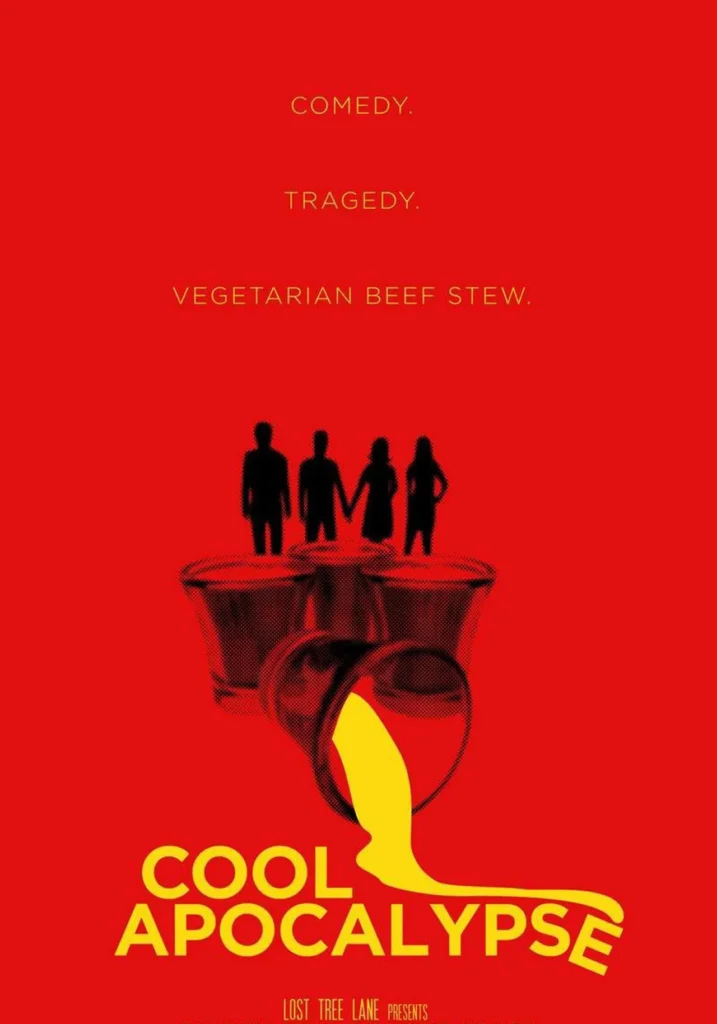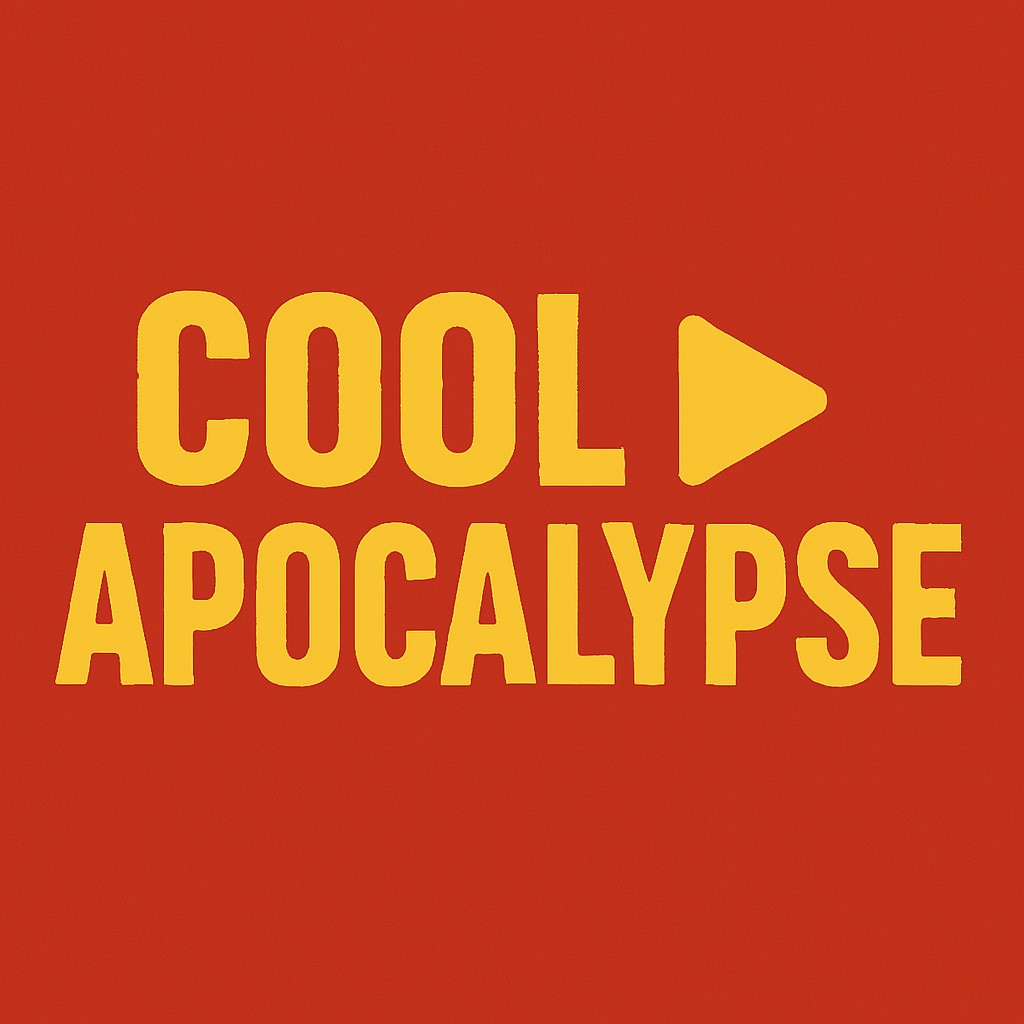
Director: Michael Glover Smith
Genre: Drama, Comedy, Romance
Runtime: 73 minutes
Language: English
IMDb Rating: 7.8/10
Plot: Intertwining Tales of Love’s Beginnings and Endings
Set over a single summer day in Chicago, Cool Apocalypse intricately weaves the narratives of two couples at contrasting stages in their relationships. Paul (Kevin Wehby), an aspiring writer employed at a used bookstore, encounters Julie (Nina Ganet), a feminist blogger working at a women’s clinic nearby. Their chance meeting blossoms into a promising first date. In contrast, Paul’s roommate, Claudio (Adam Overberg), a video journalist, navigates the complexities of a breakup with his ex-girlfriend Tess (Chelsea David), a successful video journalist preparing for an assignment in Italy. As their paths cross during a dinner gathering, the film delves into the intricacies of love, ambition, and personal growth.
Cool Apocalypse captures the bittersweet rhythm of modern relationships with warmth, wit, and disarming honesty. Set against Chicago’s vibrant summer backdrop, it mirrors the push and pull between new beginnings and quiet endings. Director Michael Glover Smith crafts an intimate portrait of connection and self-discovery, where conversations carry more weight than grand gestures. It’s the kind of thoughtful indie gem that resonates with audiences on Goojara official site, where human stories unfold with authenticity and quiet charm. Cool Apocalypse reminds us that love isn’t always about fireworks — sometimes it’s about learning to listen, let go, and begin again under the same city sky.
Visual Style: Embracing Black-and-White to Reflect Emotional Depth
Director Michael Glover Smith opts for high-contrast black-and-white cinematography, lending the film a timeless and intimate aesthetic. This choice accentuates the emotional nuances of the characters, allowing their interactions and expressions to take center stage without the distraction of color. The monochromatic palette also pays homage to classic relationship dramas, grounding the narrative in a rich cinematic tradition.
Cast: Authentic Portrayals of Relatable Characters
Kevin Wehby (Paul): Embodies the introspective and somewhat reserved nature of an aspiring writer, capturing the vulnerability and excitement of new romantic endeavors.
Nina Ganet (Julie): Delivers a vibrant and confident performance as a feminist blogger, portraying a character who is both assertive and open-hearted, bringing warmth to her budding relationship with Paul.
Adam Overberg (Claudio): Portrays the complexities of a man grappling with professional stagnation and personal loss, effectively conveying the frustration and confusion of a relationship’s end.
Chelsea David (Tess): Captures the essence of a driven professional on the cusp of a significant career move, while navigating the emotional remnants of a past relationship.
Themes: The Ebb and Flow of Modern Relationships
Cool Apocalypse thoughtfully examines the dynamics of contemporary relationships, juxtaposing the exhilaration of new connections against the melancholy of breakups. The film delves into themes of communication, personal ambition, and the societal pressures that influence romantic engagements. By presenting both the inception and dissolution of relationships, it offers a holistic view of love’s multifaceted nature.
Reception: A Warm Embrace from Critics and Audiences
The film has been well-received, with particular praise directed at its authentic dialogue, relatable characters, and the chemistry among the cast. Critics have highlighted Smith’s ability to craft a narrative that feels both personal and universally resonant. The choice of black-and-white cinematography has also been lauded for enhancing the film’s intimate atmosphere.
The Critic’s Verdict
Cool Apocalypse stands as a testament to the power of nuanced storytelling in independent cinema. Michael Glover Smith’s directorial debut captures the complexities of human relationships with sincerity and depth. The film’s minimalist approach, combined with strong performances and thoughtful dialogue, makes it a compelling watch for those interested in character-driven narratives.
Rating: 8/10
A poignant and introspective exploration of love’s beginnings and endings, presented with authenticity and charm.
Pair With
Before Sunrise (1995) for another contemplative look at the genesis of a romantic connection, or Blue Valentine (2010) for a raw portrayal of a relationship’s evolution over time.
Cultural Footprint:
By focusing on the everyday experiences of young adults in Chicago, Cool Apocalypse contributes to the landscape of independent films that highlight urban life and contemporary relationship dynamics. Its emphasis on authentic dialogue and character development aligns it with a tradition of films that prioritize emotional realism over grandiose plotlines.
Additional
In addition to its core exploration of romantic relationships, Cool Apocalypse offers a subtle yet resonant portrait of urban millennial life in Chicago. The film captures the nuances of post-college uncertainty—both personal and professional—without resorting to clichés. The characters’ conversations about literature, feminism, career ambitions, and emotional baggage feel genuine and reflective of a generation navigating a world of evolving social dynamics. This authenticity stems not only from Smith’s sharp writing but also from his background as a film studies professor, which lends the script a layer of intellectual engagement often missing from similarly themed indie romances.
Moreover, the film has gained recognition on the festival circuit, including screenings at the Chicago International Movies and Music Festival and accolades from local indie press outlets. Critics have compared Smith’s approach to that of early Richard Linklater and Jim Jarmusch, particularly praising the way he lets conversations unfold organically and allows silence to speak as loudly as dialogue. Cool Apocalypse ultimately positions itself as a quiet triumph in American micro-budget cinema—proof that compelling storytelling doesn’t require elaborate sets or heavy-handed drama, but rather a deep understanding of character and place.
